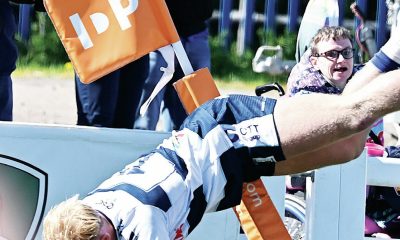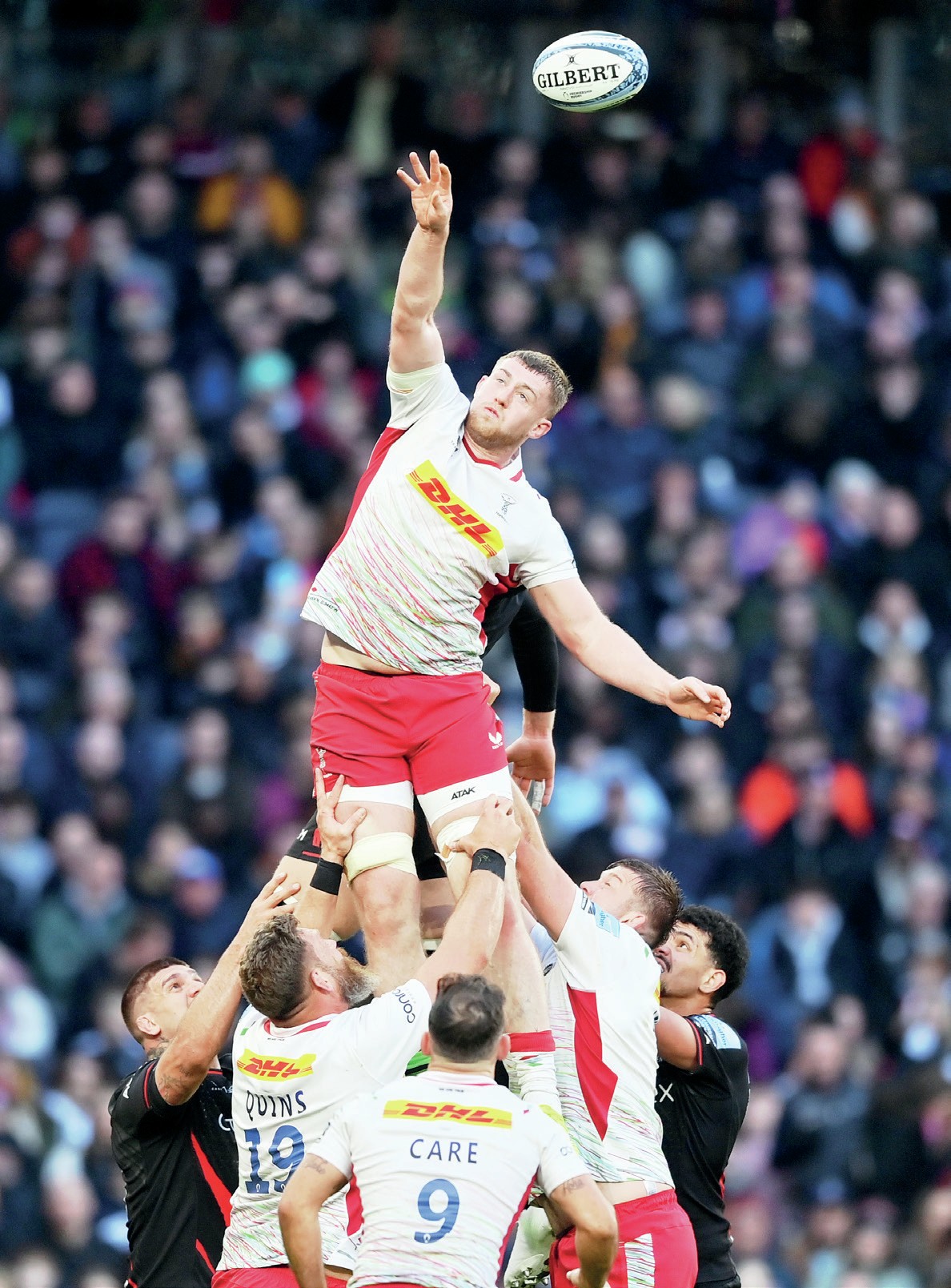 The relevance of the RFU Council was brought into question in last week’s paper by former chairman of the management board Martin Thomas. He said that if the council were to be disbanded it would free up £1.6m for investment in amateur clubs and that the Slaughter & May report supposedly identified the council as an anachronism.
The relevance of the RFU Council was brought into question in last week’s paper by former chairman of the management board Martin Thomas. He said that if the council were to be disbanded it would free up £1.6m for investment in amateur clubs and that the Slaughter & May report supposedly identified the council as an anachronism.
Thomas, despite close his close ties with the professional game dovetailing with his role as the guardian of the amateur game, was able to facilitate a number of agreements with the professional clubs – but I must admit I wasn’t surprised to read his comment.
Particularly as it was the council that eventually forced him to step down from the RFU after many years at the top of the amateur game as the bridge between the two areas of the game and, latterly, as the acting RFU chief executive.
The Slaughter & May report was commissioned at a time when the RFU was in disarray after Thomas, among others, had forced the removal of John Steele as chief executive and the corporate governance of the game (which falls under the control of the management board) was called into question by the government.
Slaughter & May produced a report that would usually be commissioned for a PLC, not a sport that relies on a massive number of hard-working volunteers to run the majority of its day-to-day activities.
In identifying the ‘perks’ of the council as a potential source of cutbacks, Slaughter & May fail to understand that, unlike directors of a PLC, the vast majority of the council do not get paid for the time they commit in enabling our game to function.
Thomas was at the forefront of seeking remuneration for the work that the chairman and others had to undertake and that is one of the few areas of the council that now allows the incumbent to receive financial recompense (around £75,000 currently) for time spent on RFU business.
The comment “that the skillset does not exist within the RFU council to assist in running the international or professional club game and therefore the cost of council cannot be justified”, would seem to me a little naïve as the council is made up of an eclectic group of people, some of whom are at the top of their professions and indeed have the skillsets equal to, or better than, many who run Aviva Premiership clubs!
However, more to the point, the council are not only there to assist in running the professional game, which after all is just a very small percentage of Rugby Union; they are there to facilitate the smooth running of a sport that has nearly 2,000 clubs and provides rugby for more than one million participants each week across all age ranges throughout the country.
It was in response to the recognition that the professional game needed a more ‘professional’ approach that the management board was created and a chairman with a casting vote elected from the council to protect the amateur game from being cast aside in the chase for more and more money at the expense of the sport itself.
During the time that Thomas was chairman of the management board, the level of funding to the amateur game was continually reduced to its present levels and that is practically zero with the current investment made by the RFU in grassroots rugby nowhere near the level of the Premiership on a ‘per club’ basis.
Thomas also stated that the RFU now have more than 500 paid employees which is true, but what he didn’t say is that their wage bill (currently justover £21m) exceeds the money that the RFU invest in the game and could provide a better avenue for seeking savings.
The irony of this is that during the amateur days the RFU was run by the committee (council) with just 70 paid employees, during which time the stadium as we know it was practically built and clubs at all levels of the game received a payment (dividend) from the Union.
There were also a number of wild inferences last week as to what council members actually get in the way of perks and expenses, including a number of free international tickets, which is not true.
They get a ticket for themselves and their partner in the council box at Twickenham and a ticket for away games (partners can chose one away game per season to accompany them).
Travel is paid only if on RFU business which includes going to meetings or games. As for wining and dining, that is usually just at the pre-match and post-match dinners entertaining the visiting Unions and players.
As for hotel accommodation, the games and most meetings take place at Twickenham so it is only fair that those representing the far-flung corners of our nation have the cost of their accommodation covered.
That £1.6m may seem a large sum of money but when divided by the number of council members which include the president (who will travel to virtually every club during his year) and management board members, some of whom are paid, it averages out at around £26,000 per member (my expenses were around £750-£1,500 per year as I live in London).
That is to cover all travel, food and accommodation throughout a year of meetings and attending games in whatever country, all in their own time and at some personal expense as the money is not refunded until some time after the event.
Rugby is a world sport that has been served well over the years by those that have been willing to give their time for free and while there are times when they may seem a little out of touch or surplus to requirement, they still remain the best checks and balances against the excesses of those who believe that they are more important than the game.

4 Comments
You must be logged in to post a comment Login
Leave a Reply
Cancel reply
Leave a Reply
You must be logged in to post a comment.

Latest News
Magnifique! Another Grand Slam for Red Roses

Latest News
Luke Northmore still in the England reckoning























Pingback: ติดตั้ง ais fiber
Pingback: Fernald Belcampo scandal
Pingback: สมัคร สล็อตออนไลน์ LSM99
Pingback: Free Palestine